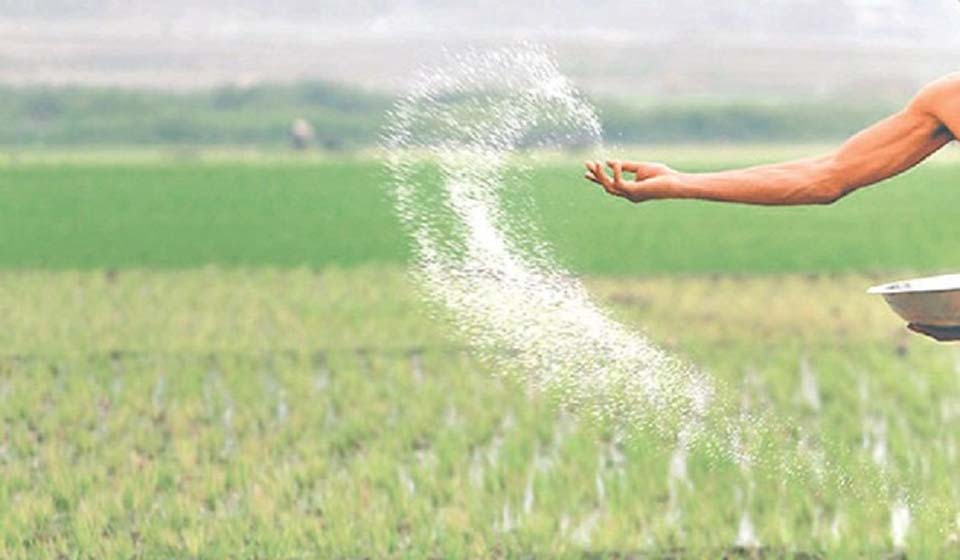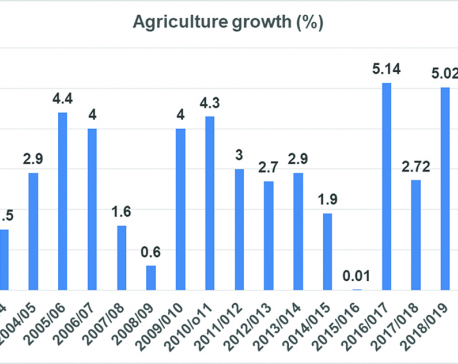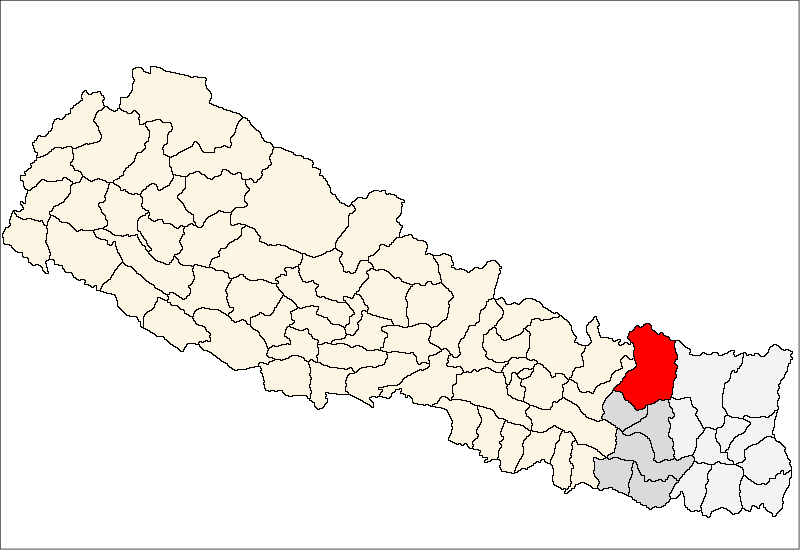
OR
Farmers heavily rely on Indian fertilizers for cultivation
Published On: July 27, 2023 03:30 PM NPT By: Republica | @RepublicaNepal

TIKAPUR, July 27: This year, farmers from the southeastern part of Kailali have been cultivating using fertilizers brought from India after not finding any in the local market. Farmers from Tikapur Municipality wards 6, 7, 8, and 9, Bhajani Municipality, and Joshipur Rural Municipality have been cultivating crops by obtaining fertilizers from the markets in India.
Shyam Lal Chaudhary from Tikapur-8 said, "I haven't been able to find fertilizers even in the cooperative, so I am using the ones brought from India out of necessity. However, there are concerns about the effectiveness of Indian fertilizers in farming."
Chaudhary added, "We could not get the fertilizers available in the cooperative even after standing in long queues from around 3 o'clock in the morning." The farmers were unsure whether they should wait for the government-provided fertilizers or proceed with farming this year. During last year's floods, the stored fertilizers were damaged, leaving many farmers disappointed due to the lack of availability.
"The distress of last year's floods was immense. All of the stored fertilizers for two years were washed away, and now I am disheartened to farm without any fertilizers. I had seven bags of DAP and seven bags of urea, but not even one bag was left. I had to use the ones brought from India,” Sher Bahadur Saud, a local, said.
Wards 6, 7, 8, and 9 are the areas where the largest paddy cultivation occurs in Tikapur. In these wards, as many as five cooperatives are involved in the sale of fertilizers. They inform farmers when the essential supplies are unavailable.
After not receiving enough fertilizers, the chairman of Laxmi Narayan Cooperative located in Ward Number 6, Kapur Singh Kadayat, said, “We only received 25% of the required fertilizers.”
Laxmi Narayan Cooperative had provided the farmers with 950 bags of urea, 350 bags of DAP, and 100 bags of organic fertilizer this year. This amount is only half of the previous year's supply. Kadayat added, “We are doing our best to acquire more fertilizers.”
The shortage of fertilizers has led to an increase in the use of pesticides by farmers, affecting the quality of the rice. Farmers claim they have been forced to search for fertilizers outside the country. Farmers from Bhajani and Joshipur also complained about the dependency on Indian fertilizers and said, “We are compelled to use them in lack of local options.”
Thakuri said that some farmers were deceived when they brought in fertilizers from India in the past. "When the government does not provide fertilizers on time, the farmers bring fertilizers from India, and the police trouble them when they bring fertilizers," he said, "Last time, there was a hand-to-hand situation between the police and the farmers at the border." Spring paddy is cultivated in some wards of Bhajani, but it is not cultivated due to floods in the rainy season.
Another local, Sukadev Chaudhary of Joshipur, struggled to get fertilizers for farming this time. He brought fertilizers from Tikuniya, India, after not getting fertilizers from the local cooperative. "I needed 14 quintals of fertilizer," he said, “ It took me five days to get the fertilizers from India with the help of a carrier. I wonder how long one can practice agriculture in such an unfavorable and stressful situation”.
Even after the paddy cultivation season, farmers still require fertilizer. However, currently, there is a scarcity of it. Necessary supplies like fertilizers, seeds, and irrigation facilities should be easily accessible to farmers. Easy availability of these essentials can promote agricultural growth and attract farmers to agriculture.
You May Like This

Erratic pattern
Agriculture in Nepal is suffering from years of under-investment, limited research, scant inputs and lack of technology and services for... Read More...

Agriculture Knowledge Centre established
SAPTARI, Oct. 4: An Agriculture Knowledge Centre has been established in Rajbiraj district by the Ministry of Land Management, Agriculture... Read More...

All activities of Agriculture and Forestry University, Rampur, halted
RATNANAGAR (Chitwan), August 7: All activities of Agriculture and Forestry University, Rampur, have been halted for the past one week... Read More...




Just In
- NEA Provincial Office initiates contract termination process with six companies
- Nepal's ready-made garment exports soar to over 9 billion rupees
- Vote count update: UML candidate continues to maintain lead in Bajhang
- Govt to provide up to Rs 500,000 for building houses affected by natural calamities
- China announces implementation of free visa for Nepali citizens
- NEPSE gains 14.33 points, while daily turnover inclines to Rs 2.68 billion
- Tourists suffer after flight disruption due to adverse weather in Solukhumbu district
- Vote count update: NC maintains lead in Ilam-2













Leave A Comment